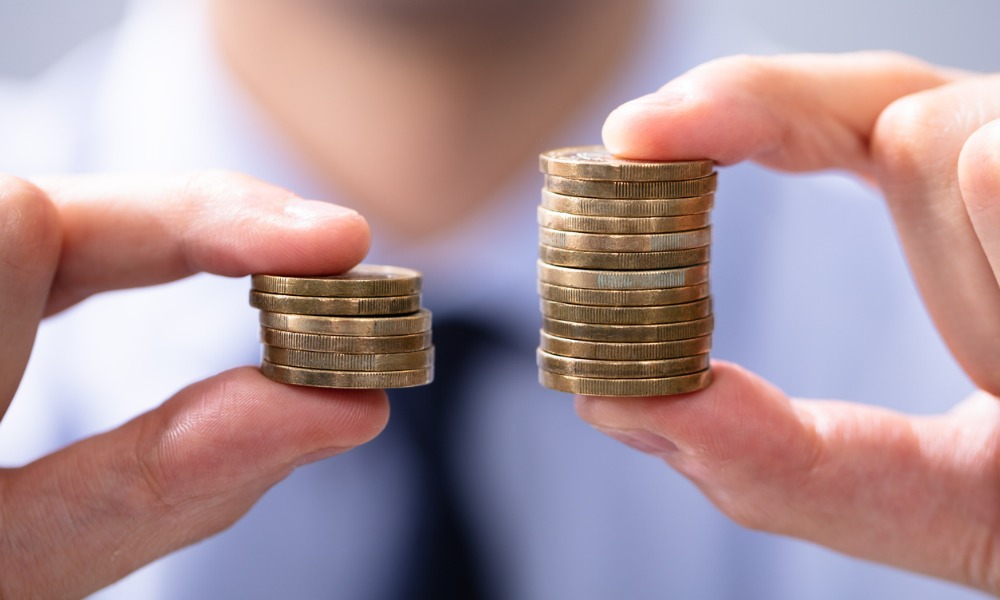NAB, Macquarie bosses get huge pay bumps while most workers see a reduction in real wages

The CEOs of Australia’s top 20 companies saw pay rises averaging 17.16% over the past year – more than nine times the average pay hike given to ordinary full-time employees, according to data compiled by Guardian Australia.
Ross McEwan, CEO of National Australia Bank, saw the largest pay hike in percentage terms, with the value of his remuneration spiking nearly 130% from $2.21 million to $5.29 million, The Guardian reported. NAB said McEwan was only in the position for 10 months in the previous year, and also voluntarily took a pay cut and no bonus that year due to the COVID-19 pandemic.
Macquarie Group had the highest-paid CEO of any top-20 company. CEO Shemara Wikramanayake’s total compensation increased 48.5%, from about $16 million to $23.7 million.
By comparison, in the year to May, the average pay of full-time workers rose by only 1.9% to $92,000 per year – meaning that unlike their CEOs, workers actually took a pay cut in terms of real spending power thanks to inflation, The Guardian reported.
The data also showed the gap between CEO pay at top-20 companies and the pay received by line workers in the same industry.
Greg Goodman, CEO of real estate company Goodman Group, earned $15.8 million last year, The Guardian reported. That’s 186 times the $84,800 salary earned by the average worker in the real estate sector.
Read next: Westpac, FSU clash over pay rates
Economist Richard Denniss, executive director of the Australia Institute, pushed for the government to introduce a 60% income tax on earnings above $1 million per year in order to deal with “a small number of people that are receiving enormous benefits from incredibly profitable companies.”
“If the companies want to hand away shareholders’ money so freely, I can’t see any economic or democratic reason why we shouldn’t collect some of that back in the form of a new income tax threshold,” Denniss told The Guardian.
Denniss said that CEOs had a double-standard when it came to their own paychecks. Company bosses, he maintained, were not demonstrating the same increases in productivity that they demand from line workers in return for pay increases.
“Did CEOs work 17% smarter this year?” he said. “Did they work 17% harder this year, and when they sat down with their boards, did they prove that they were 17% more productive? That is really important, because how does a librarian prove that they’re more productive this year? How does the childcare worker prove that they’re more productive this year? Of course it’s impossibly difficult, and their employers know that. But their employers, the CEOs, don’t apply the same rules to their own remuneration. It’s no accident.”
Denniss told The Guardian that CEO pay hikes were largely due to surging profits. Across the top 20 companies, profits after tax spiked by an average of 53%.
“So when the wage and salary earners work harder and work smarter and get real wage reductions, then of course profits go up,” he said. “And of course, the CEO salary goes up – but the CEO doesn’t have to prove what they did. They’ve got a slice in the performance of the business – a slice that their employees are entitled to.”



